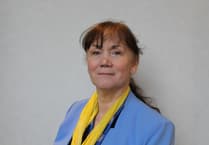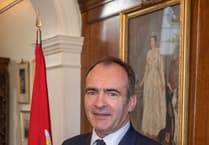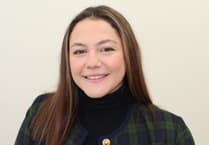Nominations open this month for the next Legislative Council election.
Current members are Marlene Maska, Tanya August-Hanson, Paul Craine, and Diane Kelsey, who are all set to retire from the council this year, and Peter Greenhill, Bill Henderson, Rob Mercer, and Kerry Sharpe, who will continue until 2025.
Those retiring have the choice to stand again in the upcoming election.
Members of Legislative Council are not voted for by the public. They are voted for by Members of the House of Keys – and the votes are recorded by Hansard.
There are 11 members, including President of Tynwald Laurence Skelly, Bishop Peter Eagles, and Attorney General Walter Wannenburgh, but he doesn’t get to vote.
The Legislative Council is the upper branch of Tynwald, where members are lawmakers, meaning they consider draft primary legislation.
The council sits in public each week and considers this legislation.
Bills (draft laws) originate in the House of Keys or the Legislative Council. However they are more likely to start in the council towards the end of the parliamentary term as any Bills that remain before the House of Keys when it’s dissolved have to be thrown out.
Bills are considered in four stages, which are first reading, second reading, clauses stage, and third reading.
Unlike in the House of Keys, the first reading is debated and the second reading and clauses stage are normally taken on the same day in the council.
Each of the three readings, and each clause or group of clauses, at clauses stage, must be carried by a simple majority of voting members present.
At the end of a debate, the president puts the motion to the council.
The members say either ‘aye’ or ‘no’ and the president announces the result on the basis of the oral response.
Any member may then call for a division which is taken by the clerk of the council, who calls on each member by name to say ‘for’ or ‘against’ and records the votes.
Other motions and statements, though rare, can also occur. The Legislative Council may also resolve to sit in private, and in that case all members of the public have to leave.
An optional stage to send a Bill to a select committee may be invoked but the council doesn’t have standing committees to which Bills are automatically referred.
The Legislative Council is never dissolved, therefore its business doesn’t terminate.
It continues to sit as normal and may consider Bills sent to it by the dissolved House of Keys.
A Bill considered by the council after the dissolution of the House of Keys would have to be reconsidered by the new House of Keys before it could be signed in Tynwald.
The Isle of Man Examiner contacted all retiring members of the Legislative Council.
Of those, Paul Craine said he would be standing again.
‘I will be seeking a proposer and assentors in the new year and hope to be able to stand for re-election to the Legislative Council on March 14th,’ he said.
‘It has been a remarkable privilege to participate in the work of Tynwald, Legislative Council and committees, especially in relation to population and climate change. ‘Since election by the House of Keys in November 2021, I have worked hard, learnt much and gained a better understanding of how our parliamentary system works. I would very much like to continue in this role for a full term of office.’
However, Marlene Maska said: ‘I do not intend to stand for election for another term as an MLC.
‘It has been an amazing privilege to serve during some very challenging times, but it is now right for me to stand aside to make way for new talent.’
Nominations for the Legislative Council open on January 26 and close on February 24.




